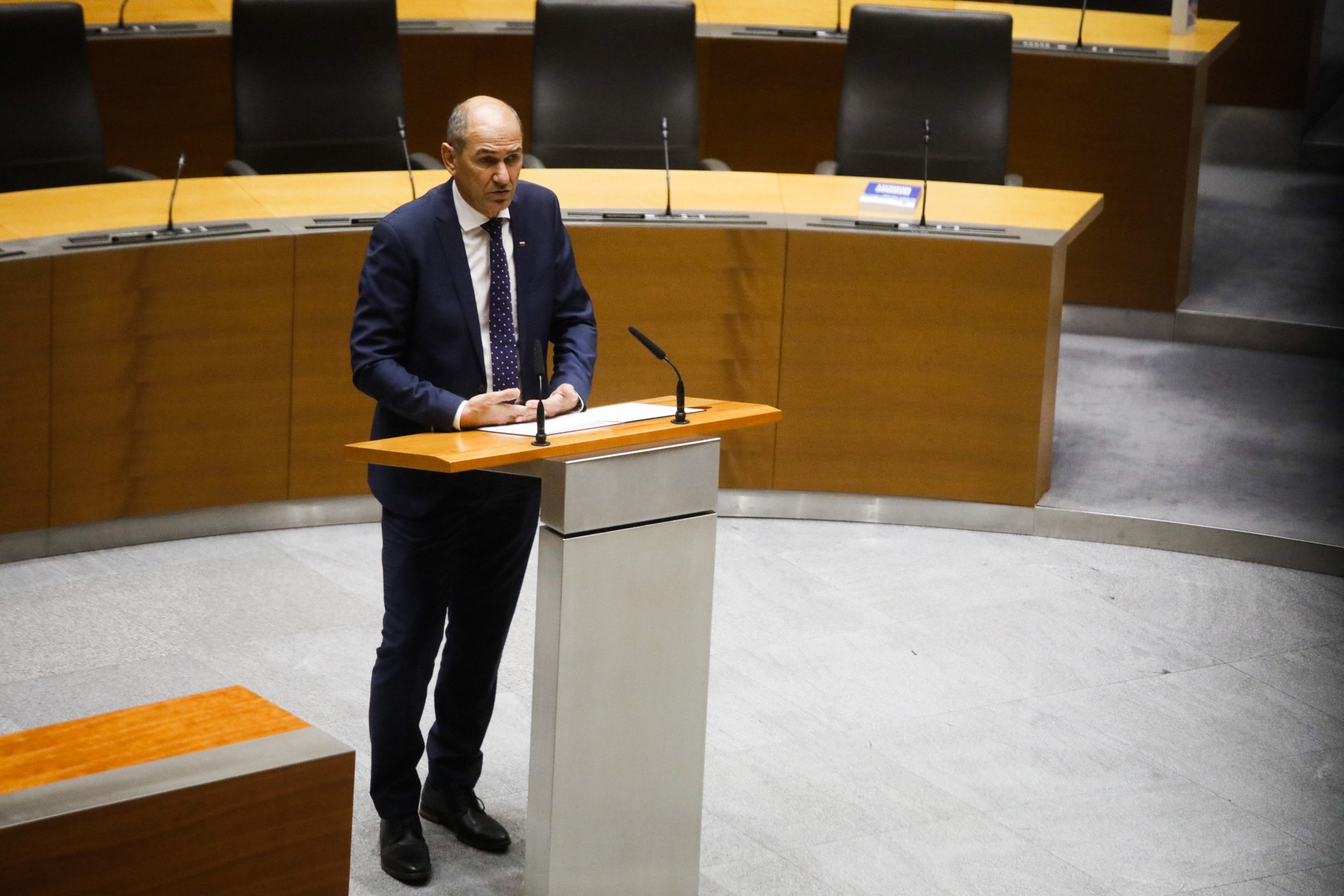Slovenia got its 14th government at the height of the coronavirus epidemic as the National Assembly confirmed the centre-right cabinet of Janez Janša at a session Friday at which the fight against coronavirus and the previous government’s inaction in the face of the outbreak dominated the debate.
Janša, the president of the Democrats (SDS), came out in force against the previous government’s efforts, accusing it of having missed the best time to take action and announcing that the new cabinet would hold its first session an hour after parliament goes into recess to discuss new measures to fight the epidemic.
He promised the government would take concerted and far-reaching measures. The virus can no longer be stopped, but its spreading must be slowed. “This is a battle with time, a battle that has to be won inasmuch as this is possible,” he said.
The debate touched on little else except the epidemic, which is not surprising given that the new government will take over a day after Slovenia officially declared a coronavirus epidemic due to a surging number of new cases.
Janša said the outgoing government had “flunked the test in recent days”, likening the response of the authorities to the reaction to the migration crisis in 2015, when “what was coming was underestimated and reactions were chaotic”.
This was despite health professionals warning that immediate tough measures must be taken to contain the disease, he said, noting that Slovenia should have followed the example of countries such as South Korea, which it had had enough time to do given that there was a month’s advance warning from the situation in China.
Given the national emergency, the new centre-left opposition pledged to be constructive in helping the government fight the epidemic, but it also stressed that it would keep close watch on any actions that may be deemed excessive.
The Left in particular warned about Janša’s “autocratic potential” with MP Matej Tašner Vatovec saying that the circumstances – the coronavirus epidemic and the looming new migration wave – practically “put the state of emergency into your hands”. “He will not have to create a state of emergency like he did in the past, it is practically here already.”
The coalition said once the situation normalises the government would focus on its priorities, in particular demographic policy, regional development, infrastructure investments, housing policy and healthcare, and presidency of the EU in 2021.
SDS deputy Eva Irgl said the overarching goal was to ensure the “fair and effective functioning of the state” by tackling pensions and health insurance, establishing a balance between welfare and the market economy, strengthening Slovenian and European identity, and protecting borders.
Irgl said it was impossible to put all priorities of the coalition partners in the coalition agreement given that the government will have only two years, but it would “invest the time and effort to together support solutions that citizens urgently need.”
The session lasted a mere two and a half hours as procedural rules were used to limit formalities and all but a handful of MPs refrained from debate after the deputy groups presented their positions.
The entire process of building the government has been fast by Slovenian standards. The vote came just two weeks after Janša was endorsed as prime minister designate and a month and a half after Marjan Šarec stepped down as prime minister.
Several coalition MPs today stressed it was fortuitous that the partners had decided against a snap election, the outcome favoured by Šarec, and in favour of building a new government; if snap election had been the chosen path, Slovenia would now be in the midst of an election campaign.

